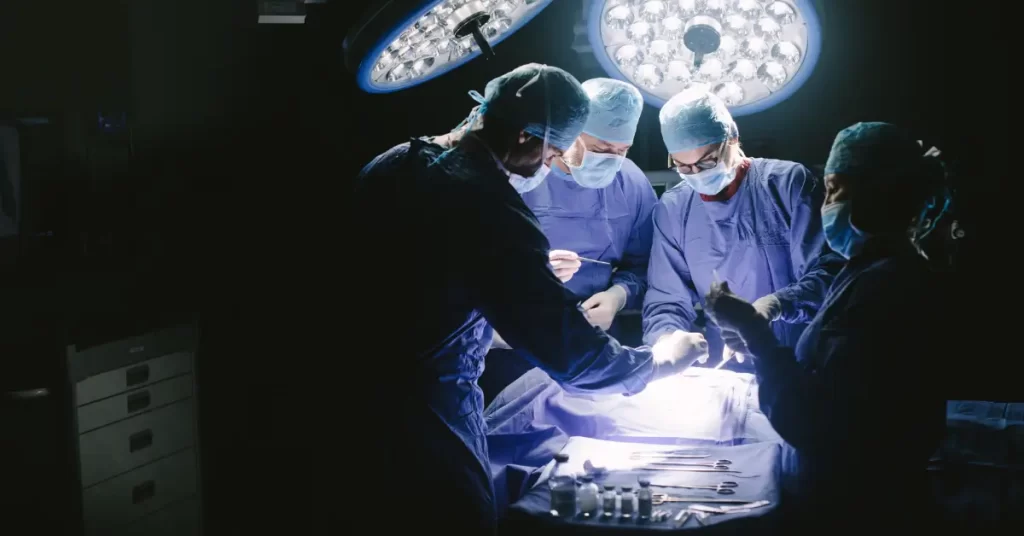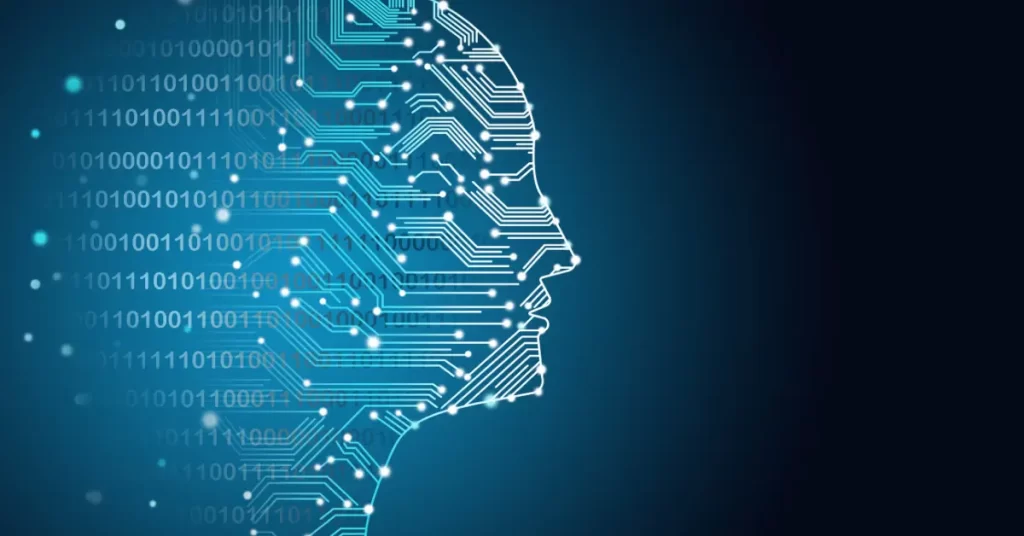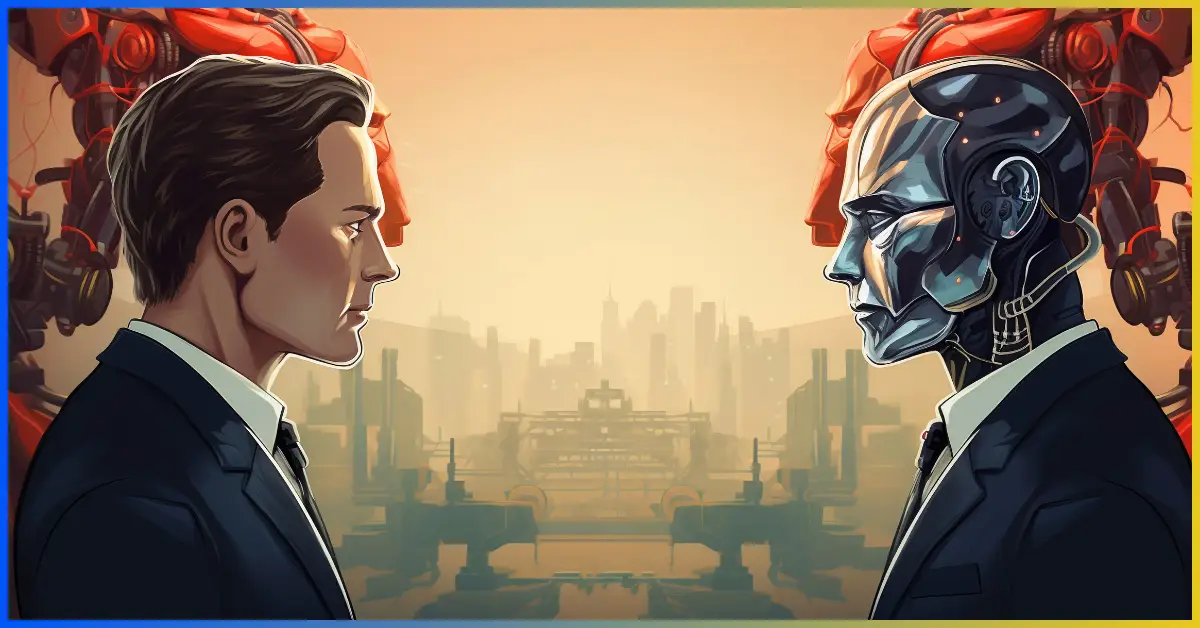The popularity of artificial intelligence (AI) such as ChatGPT, Gemini Ai has shaken both professional and academic environments. Although there is debate about whether ChatGPT is free of plagiarism.
The popularity of AI has also provoked debates regarding whether its entry into the workplace could cause job losses.
IBM predicts that 85 million jobs across the globe could be at risk of being automated in 2025. As AI is a standard technology, it may replace a lot of human work.
However, the best part is that AI is great at increasing efficiency, but it cannot replace the job completely on numerous occasions. Work that requires human capabilities such as creativity, judgment and emotional intelligence are secure from AI.
If you’re thinking about what career you should pursue to minimize the dangers of AI, look at our list of top jobs that AI can’t replace.
1. Nursing

The nursing profession is in the field of healthcare focused on the care of families, individuals, and communities to help people achieve, sustain, or regain their health to a high standard and improve the quality of living.
Nurses collaborate closely with patients to provide physical and psychological support. They also provide medication and treatments.
Which tasks can be automated?
Robots as well as artificial Intelligence aid nurses in completing the given below following tasks:
- Data entry and record-keeping: With advancements in electronic health records (EHRs) as well as other electronic technology, robots and AI assist in entry of patient information and maintaining the records.
- Medication dispensing: Automated medication dispensing systems can cut down on human errors as well as ensure patients get the right dosages and medications.
- Monitoring vital signs: Wearable devices and remote monitoring systems could help track vital signs of patients and allow nurses to swiftly spot any irregularities or changes in a patient’s condition.
Which tasks are better with a human touch?
Despite the possibility of automation in certain fields, there are many nursing tasks that cannot be automated. They require human connection, compassion and critical thinking skills nurses have.
- Building rapport with patients: Nursing staff play an important role in building trust and establishing rapport with patients. This emotional connection is vital to ensure the highest quality of care. It can’t be duplicated by machines.
- Providing emotional support: Nurses often provide emotional support for patients and their families in difficult times. This requires compassion, understanding and genuine human connection that AI algorithms can’t provide.
- Educating patients and families: Nurses play an important part in educating them on their condition, treatment options and self-care. This requires clarity in communication and the ability to adapt information to each patient’s specific needs and situation.
2. Dentistry

Dentistry is a field of medicine that concentrates on diagnosing, preventing and treating diseases that affect the oral cavity, teeth gums and the related structures. Dentists play a vital part in maintaining the health of your mouth and are essential to overall health. The main dental responsibilities include:
- Diagnosing and treating oral diseases
- Performing dental procedures, such as fillings, extractions, and root canals
- Designing and fitting dental prostheses, like crowns and dentures
- Educating patients on proper oral hygiene and preventive care
Which tasks can be automated?
Although technology has brought about significant advances in dentistry, most of these advancements are intended to aid dentists, not replace them. Certain tasks that could be automated or enhanced with technology include:
- Dental Imaging: Digital X-rays and 3D image technology have changed the way dentists assess and plan treatment offering more precise and more detailed pictures.
- Appointment Scheduling: Automated booking systems online and reminders simplify appointments scheduling and help reduce the workload of dental office personnel.
- Patient Records Management: Electronic health records (EHRs) assist dentists in efficiently managing patient data and store it which improves the overall quality of treatment.
Which tasks are better with a human touch?
Despite all the advances in technology however, there are some areas of dental care that robotics or AI can’t perform. A few of these are:
- Clinical Judgment: Dentists must use their expertise and critical thinking abilities to identify and treat complicated oral health problems, something that is not accomplished through robotics.
- Patient Communication: Dentists must establish confidence with patients. They must communicate the options for treatment, and offer individualized treatment, all of which require the ability to communicate effectively that robots can’t duplicate.
- Emergency Care: In situations when urgent dental care is required, like an extreme toothache or damaged tooth dentist’s ability to identify and treat the issue swiftly and efficiently is unbeatable.
3. Philosophy

The study of philosophy is fundamental questions of the nature of existence, knowledge, values and reason, as well as mind and language. It is a process of using critical thinking, logical analysis and the exploration of abstract concepts. Philosophy majors acquire skills in problem-solving, communicating, and reasoning, all of which are vital in a variety of professional fields.
Which tasks can be automated?
While certain aspects of philosophy may be susceptible to automation, it is important to note that these tasks are relatively limited. Some of these tasks include:
- Data Collection and Analysis: AI can assist in gathering and organizing large amounts of data from various philosophical texts and articles, making it easier for philosophers to access and analyze information.
- Language Translation: Automated translation tools can help philosophers read and understand texts in different languages, broadening their scope of knowledge.
- Basic Logical Analysis: AI performs basic logical analysis and identifies fallacies in arguments, allowing philosophers to focus on more complex and nuanced aspects of their work.
Which tasks are better with a human touch?
Despite the potential for automation in some areas, the core aspects of philosophy remain uniquely human. Some tasks that cannot be automated include:
- Creative and Critical Thinking: Philosophy requires the ability to think creatively and critically, exploring abstract concepts and challenging established ideas. AI may assist in analyzing data, but it cannot replicate the human capacity for original thought and deep understanding of complex issues.
- Empathy and Moral Reasoning: Philosophers often engage in ethical debates and discussions, requiring a deep understanding of human emotions, values, and experiences. AI lacks the ability to empathize and engage in moral reasoning, making it unsuitable for addressing these essential philosophical questions.
- Interpretation and Contextual Understanding: Philosophy involves interpreting and understanding texts and ideas within their historical and cultural contexts. AI may be able to identify patterns and trends in data, but it cannot grasp the nuances and complexities of human culture and history.
4. Law

Law is a complex and multifaceted field that involves the study and practice of rules and regulations governing society. Students who major in law typically go on to become lawyers, judges, legal consultants, or work in other areas related to the legal profession.
The practice of law requires a deep understanding of legal principles, critical thinking, and excellent communication skills.
Which tasks can be automated?
There are certainly aspects of the legal profession that can be, and already are, automated. For example:
- Document Review: AI-powered tools can help with sorting through large volumes of documents to identify relevant information for a case.
- Legal Research: AI-powered tools assist in searching through vast databases of legal information to find relevant precedents and regulations.
- Contract Analysis: Automation can be used to review contracts and identify potential issues or areas of concern.
Which tasks are better with a human touch?
Despite the potential for automation in some areas, there are several critical aspects of law that cannot be replaced by robots:
- Empathy and Emotional Intelligence: Lawyers often deal with clients who are going through difficult situations, such as divorce or criminal charges. The ability to empathize and connect with clients on an emotional level is crucial to providing effective legal representation.
- Persuasive Communication: The art of persuasion is essential in the courtroom, as lawyers must be able to present their arguments in a compelling manner to convince judges and juries. This requires a deep understanding of human psychology and the ability to adapt one’s communication style to different audiences.
- Ethical Decision-Making: The practice of law involves navigating complex ethical dilemmas and making decisions that have significant consequences for clients and society. This requires a strong moral compass and the ability to weigh competing interests and values.
- Creative Problem-Solving: Each legal case is unique, and lawyers must be able to think creatively and strategically to develop effective solutions for their clients.
5. Psychiatry

Psychiatry is a branch of medicine focused on the diagnosis, treatment, and prevention of mental, emotional, and behavioral disorders.
Psychiatrists are medical doctors who specialize in mental health, working with patients to understand their mental health issues and develop appropriate treatment plans. This often involves a combination of psychotherapy, medication management, and lifestyle adjustments.
Which tasks can be automated?
While robots and artificial intelligence may make inroads into many industries, their use is limited by the fact that they cannot perform all human tasks. Here are some tasks that robots can perform in psychiatry:
- Data Collection and Analysis: AI helps psychiatrists collect and analyze patient data, such as medical records, to identify patterns and trends that could inform treatment plans.
- Diagnostic Support: AI algorithms can assist in identifying mental health disorders based on patient symptoms, medical history, and other factors.
- Monitoring Treatment Progress: AI can help track a patient’s progress and response to treatment, potentially identifying areas for improvement or adjustment.
Which tasks are better with a human touch?
Although advances in technology are likely to eventually change many aspects of mental healthcare, there are several psychiatric tasks that robots cannot perform:
- Empathy and Emotional Intelligence: A key component of psychiatry is the ability to empathize with patients and understand their emotional state. Robots and AI cannot replicate the human touch and emotional intelligence required to build trust and rapport with patients.
- Individualized Treatment Plans: Each patient’s mental health journey is unique, and psychiatrists must create tailored treatment plans that address their specific needs. This requires an in-depth understanding of the patient’s life experiences, cultural background, and personal beliefs, which cannot be replicated by AI.
- Crisis Intervention: Psychiatrists often need to intervene in crisis situations, such as when a patient is experiencing suicidal thoughts or severe emotional distress. These situations require quick thinking, adaptability, and a deep understanding of human emotions, which cannot be automated.
6. Surgery

Surgery is a medical specialty that focuses on the treatment of diseases, injuries, and deformities through invasive procedures. Surgeons are highly skilled medical professionals who perform operations on patients to improve their health or save their lives. The field of surgery is diverse, including specialties such as:
- General Surgery
- Orthopedic Surgery
- Cardiothoracic Surgery
- Neurosurgery
- Plastic Surgery
- Urology
- Ophthalmology
Surgeons must possess exceptional manual dexterity, critical thinking skills, and the ability to make quick decisions under pressure.
Which tasks can be automated?
There are certain tasks within surgery that can be automated or assisted by robots. These tasks can help improve precision, reduce human error, and enhance patient outcomes. Examples of tasks that can be automated include:
- Preoperative Planning: Robots can help with preoperative planning by analyzing medical imaging data and generating a 3D model of the surgical site. This can help surgeons develop a more accurate and efficient surgical plan.
- Image-Guided Surgery: Robotic systems can assist surgeons during surgery by providing real-time, high-resolution images of the surgical site. This can help improve the accuracy of surgical procedures and minimize damage to surrounding tissues.
- Minimally Invasive Surgery: Robots assist in minimally invasive surgeries by providing better visualization and increased precision. Robotic systems like the da Vinci Surgical System are already being used to perform procedures like prostatectomies and hysterectomies with minimal incisions and faster recovery times.
Which tasks are better with a human touch?
Despite the advancements in robotic technology, there are still many tasks within surgery that require the unique expertise and judgment of a human surgeon. These tasks include:
- Clinical Decision-Making: Surgeons must make critical decisions based on their extensive knowledge and experience. Robots cannot replicate the intuition and judgment required to make these complex decisions.
- Adapting to Unexpected Situations: During surgery, unexpected complications can arise that require quick thinking and improvisation. Human surgeons can adapt and respond to these situations, whereas robots may struggle to deviate from their programmed instructions.
- Empathy and Communication: Surgeons must communicate with patients and their families, providing emotional support and discussing treatment options. Robots lack the ability to empathize and connect with patients on a personal level.
7. Artificial Intelligence and Machine Learning (AI/ML)

In today’s digital sphere, AI and ML are driving transformation, shaping industries, and revolutionizing the way we interact with technology.
In fact, the highest paying IT degree, consistently topping salary charts, is often a master’s in artificial intelligence or machine learning, reflecting the industry’s demand for expertise in these cutting-edge competitive fields.
But do remember that in today’s competitive job market, securing one of the highest-paying jobs often requires a combination of specialized skills, advanced education, and relevant experience.
Why Choose AI/ML Degree Program?
1. Job Market Growth: As per report an astonishing 74% annual growth in AI and machine learning job postings in the last five years. This figure highlights the consistent rise in opportunities in the field.
2. High Demand in Various Industries: The demand for AI and ML specialists extends beyond technology companies. In sectors such as healthcare, finance, e-commerce, and automotive, there has been a significant increase in job postings. Indian healthcare is expected to create millions of new jobs as it replaces nearly 23 per cent of current roles by 2028
3. Salaries: AI/ML professionals are among the highest earners in the tech industry. As per Glassdoor, the average salary for AI/ML Engineer is ₹10,20,000 per year in India.
4. Global AI Market: The Artificial Intelligence market is projected to grow from US$184.00bn in 2024 to US$826.70bn by 2030, with an annual growth rate of 28.46%, led by the United States at US$50.16bn in 2024.
8. Data Science and Data Analytics

In today’s data-driven world, the ability to gain valuable insights from large datasets is highly prized.
The demand for degrees in data science and big data analytics is strong, whether you’re pursuing a bachelor’s degree or aiming for advanced knowledge with a master’s degree.
In the tech and data analysis fields, data scientists are among the highest-paid professionals thanks to their expertise in extracting meaningful information from complex datasets.
Why Choose a Data Science degree program?
- Job Market Surge: The job market for data scientists and big data analysts witnessed remarkable growth. Asa per Glassdoor the average salary for Data Scientist is 90,000.USD
- Global Market Outlook: The global data scientist job market is forecasted to experience 36 percent growth between 2021 and 2031.
These statistics underscore the promising landscape of data science and big data analytics, with strong job prospects, competitive salaries, and significant global market growth.
9. Cloud Computing

In the digital world, cloud technology is the backbone of modern infrastructure. Earning a degree in cloud computing provides the knowledge and skills needed to manage and optimize cloud resources effectively. Whether you’re aiming for a bachelor’s degree or seeking advanced expertise with a master’s degree, an education in cloud computing paves the way to success.
Why Choose a Cloud Computing Degree Program?
- Salaries: Cloud Computing professionals are among the highest earners in the tech industry. As per Glassdoor, the average salary for Cloud Computing Engineer is ₹8,00,000 per year in India and $1,00,000 in USA
- Rising Demand for Cloud Experts: As per the recent study there would be around 220,000 open cloud computing postion by 2025.
These statistics underscore the vibrant landscape of cloud computing, marked by strong market growth, growing demand for cloud experts, and competitive salaries.
Conclusions
In conclusion, as AI continues to transform the job market, pursuing degrees that emphasize human-centric skills and expertise, such as nursing, philosophy, law, and psychiatry, remains crucial. These fields, along with advanced tech roles like AI/ML, data science, and cloud computing, offer promising futures by blending technology with uniquely human capabilities.
